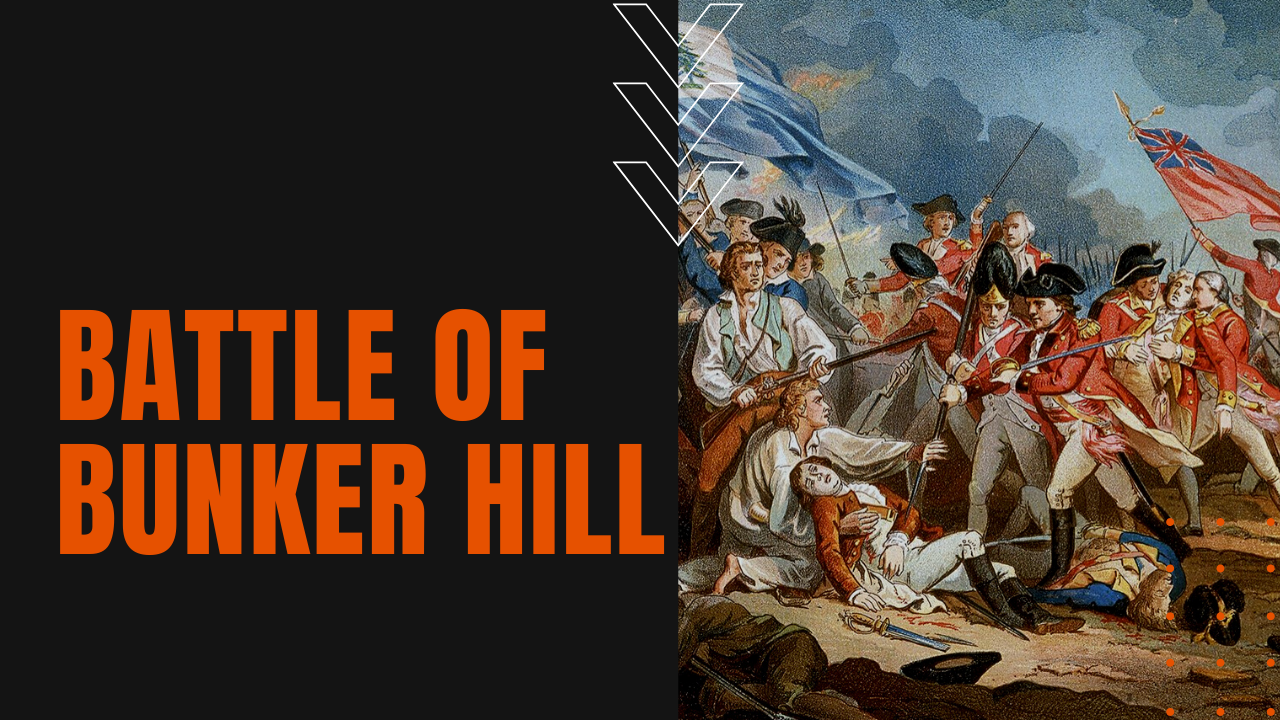Battle of Bunker Hill

After colonial militiamen successfully laid siege to British-held Boston, on June 16th, 1775, just after the Battles of Lexington and Concord which kicked off the Revolutionary War, American war leaders learned that the British were planning to send in troops to occupy the hills surrounding Boston.
The Battle of Bunker Hill Fought on Breed’s Hill
1,000 colonial militiamen under the command of Colonel William Prescott were originally ordered to build earthen fortifications atop Bunker Hill, but instead chose the smaller Breed’s Hill, which was closer to the city and provided a more strategic defensive against an anticipated sea invasion by the Redcoats.
A day later, under the command of Major General William Howe and Brigadier General Robert Pigot, 2,200 British troops landed on the Charlestown Peninsula and engaged the colonialists at Breed’s Hill.
Knowing his militiamen were woefully short on ammunition, when Prescott saw the British advance, he told his men “Don’t fire until you see the whites of their eyes.” When the Redcoats were within several dozen yards of the militia’s line, the colonialists laid down a punishing barrage of musket fire, throwing the British into an immediate retreat. After re-forming their lines, the British attacked again, with much the same outcome, both times losing a disproportionate number of British officers, which comprised an early combat strategy by the patriots.
When a third offensive found the militiamen nearly out of ammunition, the Americans resorted to hand-to-hand combat. 200 British troops were killed in the Battle of Breed’s Hill, with another 800 wounded, while the Americans lost 100 men with 300 wounded.
Who Won the Battle of Bunker Hill?
The British ultimately won the so-called Battle of Bunker Hill, which resulted in complete British control of the Charlestown Peninsula. Despite losing their strategic positions above and around the city of Boston, the battle stood as a significant early morale boost for the inexperienced Americans, convincing them that patriotic dedication could and would overcome superior British military might.
At the same time, the Battle of Bunker Hill made the British realize that war against the colonialists would be long, bloody and costly. Three weeks after the Battle of Bunker Hill, George Washington arrived at Cambridge, Massachusetts, turning ragtag assemblies of militiamen into the Continental Army.
